
(1) Process Control: Honggui Han, Beijing University of Technology, China (Chair)
1.1. Speaker: Prof. Jun Zhao, Dalian University of Technology, China
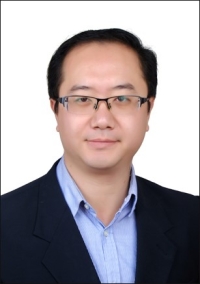
Talk Title: Data and Knowledge Driven Industrial Energy Prediction and Scheduling
Abstract: Industrial energy resource saving is capable of not only improving the enterprise profits, but also carrying out the significant strategy meaning for our country. Given the fixed technical process and equipment, the optimization scheduling of the industrial energy system is the most important approach for such a goal. However, the most industrial energy systems exhibit a very complicated structure, which can hardly establish a mechanism based model to describe such a system, and the existing manual scheduling method makes the decision making process tardily. Aiming at such a challenge, a class of data-driven predictive scheduling methodology is proposed. In detail, considering the consistent modeling, the quantitative uncertainty description, and the semantic characteristics of the energy data, the short-term prediction model, the prediction interval one and the long-term model are respectively reported, and a rolling optimization technique with the procedures of prediction-scheduling-validation is proposed. The mentioned approaches have been successfully applied to a number of industrial enterprises in our country.
Biography: Prof. Jun Zhaoreceived his Ph.D. degree from School of Control Science and Engineering, Dalian University of Technology, China, in 2008. He worked as the associated professor in 2013-2015, and the full professor since the end of 2015 at Dalian University of Technology.He is now the director of Intelligent Control Institute with the School of Control Science and Engineering, DUT, China. He has authored or co-authored over 100 technical publications in refereed journals and conference proceedings. He serves as associate editors for several top tier journals including Control Engineering Practice, IEEE TNNLS, Information Sciences, etc. From 2015, he became a Technical Committee member (TC6.2) of IFAC MMM society. In 2018, he obtained the First Class Prizes of Science and Technology Progress Award of CAA (Chinese Automation Association), and is now the scientist-in-chief of a National Key R&D Program of China. In addition, he was the recipient of Young Scholar of Yangtze River from Ministry of Education of China in 2016, and received the Excellent Young Scholar funding supported by National Natural Science Foundation of China in 2015. He is also the recipients of the Best Application Paper Award of WCICA2014, and the Zhang Zhongjun Best Paper Award of CPCC 2016.
1.2. Speaker: Prof. Chunhui Zhao, Zhejiang University, China
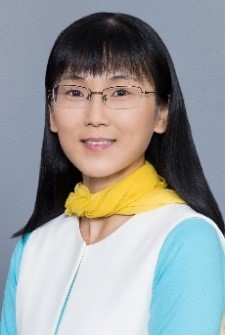
Talk Title: Data-driven, wide-range, non-stationary process monitoring
Abstract: Modern industrial production often has wide-range nonstationary operating characteristics, such as batch manufacturing processes, wide-load power generation processes, etc. Due to its large-scale non-stationary operation characteristics, it raises new challenges to the safe and reliable operation of industrial processes and has become the focus of attention. Starting from the traditional batch process, this report will present the concept of a generalized batch process, analyze the specific characteristics of wide-range nonstationary industrial processes, and summarize the basic process monitoring techniques and the relevant research work in this field. It further analyzes the existing specific problems, and extend the traditional batch process analysis methods to industrial processes with wide-range non-stationary operation characteristics. Finally, the application of the proposed method in different fields will be briefly introduced.
Biography: Prof. Chunhui Zhao has been a Professor with the College of Control Science and Engineering, Zhejiang University, Hangzhou, China. Her research interests include statistical machine learning and data mining for industrial application. She has authored or coauthored more than 110 papers in peer-reviewed international journals. She has published 2 monographs and authorized 18 invention patents. She has hosted more than 10 scientific research projects, including the NSFC funds, provincial projects and corporate cooperation projects. She was the recipient of the National Top 100 Excellent Doctor Thesis Nomination Award, New Century Excellent Talents in University, China, and the National Science Fund for Excellent Young Scholars, respectively. She has also obtained the first Automation Society Young Women Scientist Award, the Process Control Youth Award, etc., and is now an IEEE senior member. She has served AE of three International Journals, including Journal of Process Control, Control Engineering Practice and Neurocomputing, and two domestic journals, including Control and Decision, and Control Engineering.
1.3. Speaker: Prof. Xiaoli Luan, Jiangnan University, China
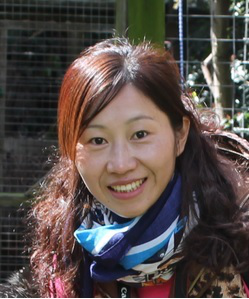
Talk Title: Fault detection based on NIR for crude oil desalting process
Abstract: The fault detection problem of the oil desalting process is investigated in this presentation. Different from the traditional fault detection approaches based on measurable process variables, near-infrared (NIR) spectroscopy is applied to acquire the process fault information from the molecular vibrational signal. With the molecular spectra data, principal component analysis was explored to calculate the Hotelling T2 and squared prediction error, which act as fault indicators. Compared with the traditional fault detection approach based on measurable process variables, NIR spectra-based fault detection illustrates more sensitivity to early failure because of the fact that the changes in the molecular level can be identified earlier than the physical appearances on the process.
Biography: Prof. Xiaoli Luan received the B.Sc. degree in industrial automation from Jiangnan University, China, in 2002; the M.Sc. degree in control theory and control engineering from Jiangnan University, China, in 2006; and the Ph.D. degree in control theory and control engineering from Jiangnan University, China, in 2010. Now she is a professor of the Institute of Automation, Jiangnan University. In 2016, she was a Visiting Professor with the University of Alberta, Canada. Her research interests include robust control and optimization of complex nonlinear systems.
1.4. Speaker: Prof. Cailian Chen, Shanghai Jiao Tong University, China
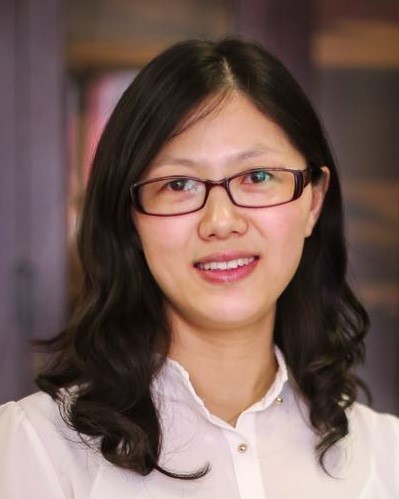
Talk Title: Ultra-Reliable and Low-Latency Transmission for Sensing and Control in Industrial Network Systems
Abstract: Real-time and precise cooperative control of industrial systems relies heavily on the reliable and timely sensing and control information interaction. Industrial Network Systems (INS) represent a class of systems integrating control, communication and computing techniques. INS enables us to quantify the interdependence and reflect evolution of physical systems and information systems. For the information exchange requirements for sensing and control in INS, this talk is concerned with the network architecture of network systems, ultra-reliable and low-latency wireless transmission and AI based scheduling techniques. The MicroRF-II Industrial Wireless Network Protocol Stack with Independent Intellectual Property will be introduced as well as the related experimental platform and demonstrative applications of wireless industrial monitoring systems.
Biography: Prof. Cailian Chen is currently a Full Professor of Department of Automation, Shanghai Jiao Tong University, Shanghai, P. R. China. Her research interests include industrial wireless networks, computational intelligence and situation awareness, Internet of Vehicles. She has authored 3 research monographs and over 100 referred international journal papers. She is the inventor of more than 20 patents. Dr. Chen received the prestigious IEEE Transactions on Fuzzy Systems Outstanding Paper Award in 2008, and “Best Paper Award” of WCSP’17 and YAC’18. She won the Second Prize of National Natural Science Award from the State Council of China in 2018, First Prize of Natural Science Award from The Ministry of Education of China in 2006 and 2016, respectively, and First Prize of Technological Invention of Shanghai Municipal, China in 2017. She was honored “Changjiang Young Scholar” in 2015 and “Excellent Young Researcher” by NSF of China in 2016.
Prof. Chen has been actively involved in various professional services. She serves as Associate Editor of IEEE Transactions on Vehicular Technology, Peer-to-peer Networking and Applications (Springer). She also served as Guest Editor of IEEE Transactions on Vehicular Technology, TPC Chair of ISAS’19, Symposium TPC Co-chair of IEEE Globecom 2016 and VTC2016-fall, Workshop Co-chair of WiOpt’18.
1.5. Speaker: Prof. Honggui Han, Beijing University of Technology, China
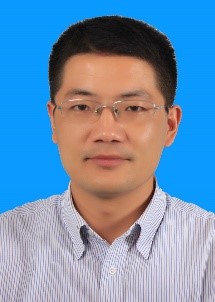
Talk Title: Multiobjective Cooperative Optimal Control for Municipal Wastewater Treatment Process
Abstract: Municipal wastewater treatment process is an effective way to protect the environment and realize the recycling utilization of water resources. However, since the municipal wastewater treatment process owns the characteristics of multiprocess, multiworking conditions and time-varying, the optimal control methods, based on the single scale, single level and single objective, cannot guarantee the optimal operation of whole system. Multiobjective cooperative optimal control can construct the performance indicators with different time scales and design the dynamic optimization method with multiple conflicting objectives for the municipal wastewater treatment process. And a multiobjective cooperative optimization control technology has been developed to achieve the multiobjective optimization of municipal wastwater treatment process between local and overall, short-term and long-term, benefit and safety. Then, the abnormal working conditions in municipal wastewater treatment plants has been reduced, and the operation efficiency of municipal wastewater treatment has been improved.
Biography: Prof. Honggui Han is a doctoral supervisor at Beijing University of Technology. He is currently vice dean of department of artifical intelligence and automation. His main research interest is intelligent optimal control. He has been selected in the National Science Fund for Excellent Young Scholars, Excellent Young Scientists in Beijing Universities, China Association of Science and Technology Youth Talents Enrollment Project, China Association of Science and Technology Youth Talents Enrollment Project, et al. Prof. Han has published more than 60 academic papers, which have been cited more than 600 times. He has been authorized more than 30 U.S.A./China invention patents and more than 30 software copyrights. He was awarded a second prize of national science and technology, a first prize of science and technology of the ministry of education, a first prize of science and technology of Wu Wenjun's artificial intelligence, and a first prize for scientific and technological progress in the cooperative innovation achievements of industry, university and research institutes in China.